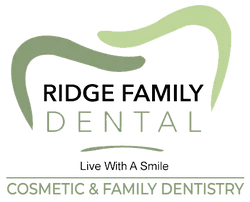When it comes to achieving a confident, healthy-looking smile, cosmetic dentistry offers a wide range of options. One of the most versatile and affordable procedures is tooth bonding. Whether you’re dealing with chipped enamel, discoloration, or minor gaps, bonding could be the simple solution you’ve been looking for. Understanding the benefits and limits of dental bonding can help you make an informed decision about your smile and oral health.

What Is Tooth Bonding?
Tooth bonding is a cosmetic dental treatment that involves applying a tooth-colored resin to the surface of the teeth. The resin is carefully shaped and hardened using a special light, allowing it to bond to the tooth structure and enhance the appearance of your smile. This procedure is typically completed in a single visit, making it one of the fastest ways to correct minor imperfections. Dentists often recommend bonding for patients who have small chips, cracks, gaps between teeth, or stains that don’t respond well to whitening. It can also be used to make teeth look longer or to change their shape, especially in the case of uneven or worn edges.
The Benefits of Tooth Bonding
One of the biggest advantages of tooth bonding is its convenience. Bonding usually doesn’t require anesthesia or multiple appointments. It’s often a relatively stress-free experience. Dentists match the resin used in bonding to the natural color of your teeth. This help ensure a seamless, natural look.
Another benefit is its affordability. Compared to more extensive cosmetic procedures like veneers or crowns, bonding is often more budget-friendly. It’s often an excellent option for people who want to improve their smile without committing to a more invasive or expensive procedure. The results are immediate. After a single session, you could leave the dentist’s office with a noticeably improved smile. Plus, the process preserves more of your natural tooth structure than alternatives like crowns or veneers, making it a conservative treatment option.
Who Is a Good Candidate?
Tooth bonding is best suited for people with minor cosmetic concerns. If you have small chips, light staining, or modest gaps between teeth, bonding could be an effective and efficient fix. It’s also ideal for patients looking for a quick improvement ahead of a big event, such as a wedding or job interview.
However, it may not be the right choice for everyone. The resin used in bonding is not as strong as natural tooth enamel or materials used in crowns and veneers. If you frequently bite your nails, chew ice, or grind your teeth, you may be more prone to chipping or damaging the bonded area. In such cases, your dentist may recommend a more durable option. Patients with more significant structural damage, large cavities, or severely misaligned teeth may need a different treatment plan that offers more comprehensive correction.
How Long Does It Last?
With proper care, tooth bonding can last anywhere from three to ten years. The lifespan depends on factors such as the location of the bonded tooth, your oral hygiene habits, and whether you avoid behaviors that can damage the resin. Regular brushing, flossing, and dental check-ups will go a long way in preserving your results.
Keep in mind that bonded teeth can stain more easily than natural enamel. Limiting your intake of coffee, red wine, and other staining agents can help maintain the appearance of your bonded teeth. If staining does occur, the bonded resin cannot be whitened with bleaching treatments, so you may need touch-ups or replacement down the line.
Making the Right Choice
Deciding whether tooth bonding is right for you ultimately comes down to your dental needs and lifestyle. It could be a fantastic option for addressing minor aesthetic issues quickly and affordably. But it’s always important to consult with your dentist to evaluate the condition of your teeth and determine the most appropriate treatment.
Tooth Bonding in Lyndhurst, NJ
At Ridge Family Dental, we are dedicated to helping our patients achieve healthier bites and more attractive smiles. If you suffer from minor damage or cosmetic issues, dental bonding could help. Contact our office today to schedule a consultation and learn more about your cosmetic and restorative treatment options.
